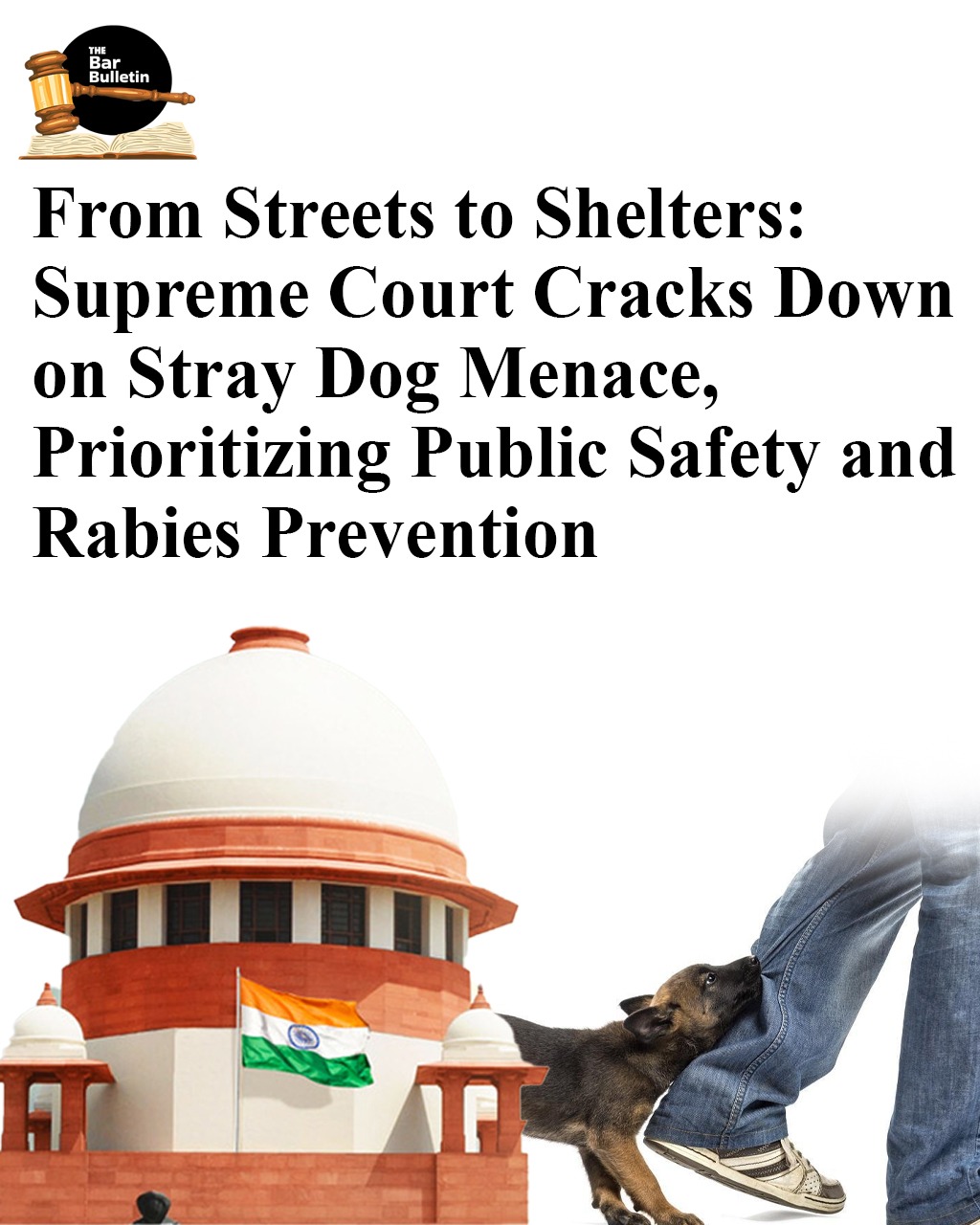The Supreme Court passed a landmark order addressing the escalating stray dog menace in Delhi and its National Capital Region (NCR). The Court directed all local authorities, including the NCT of Delhi, Municipal Corporation of Delhi (MCD), and New Delhi Municipal Corporation (NDMC), to pick up all stray dogs within eight weeks from every locality, especially vulnerable areas, and move them to designated shelters where they will be sterilized, vaccinated, and permanently housed without being released back onto the streets.
A Bench comprising Justice JB Pardiwala and Justice R Mahadevan expressed grave concern over the rising number of rabies cases and fatalities, particularly among children and the elderly. Highlighting recent reports of deaths due to dog bites, the Court emphasized that the removal order is directed squarely at safeguarding public health and safety. It bluntly questioned animal rights activists who had stalled earlier relocation efforts, asking whether such activism could bring back victims lost to rabies.
The Court instructed authorities that this exercise of rounding up stray dogs should be conducted as a matter of primary priority and without compromise. It ordered the creation of dog shelters with adequate staffing for sterilisation and immunization, along with CCTV surveillance to ensure that no dog is released back into public localities. The Court also empowered municipal bodies to form dedicated enforcement teams if necessary to ensure compliance, warning that any obstruction by individuals or organizations would be treated as contempt of Court and attract strict legal action.
While discussing the delicate balance between animal welfare and public safety, the Bench acknowledged the plight of strays but underscored that “no sentiments of any nature should be involved” in carrying out this public interest mandate. The Court noted that stray dogs pose a real threat to everyday residents, including morning walkers, cyclists, and vulnerable persons, urging practical and decisive action over sentimental considerations.
The Court vide its order dated 28 July 2025 had instituted a suo moto writ petition based on a disturbing newspaper report highlighting the alarming increase in dog bites, with thousands of incidents daily and several tragic cases involving young children and elderly victims succumbing to rabies. The petition was triggered by reports of grossly inadequate response from authorities despite repeated complaints by residents, and the growing public safety threat posed by stray dogs.
The Court noted that approximately 20,000 dog bite cases occur nationally every day, with around 2,000 daily incidents in Delhi alone. Highlighting specific tragic examples, including a six-year-old girl and a four-year-old boy seriously attacked by stray dogs, the Court underscored the urgent need for systemic intervention to ensure citizen safety.
This order marks a shift from catch-neuter-release policies to a comprehensive public health and safety framework. It reiterates that the State holds a constitutional duty to protect its citizens from risks posed by aggressive or uncontrolled stray animals, while ensuring ethical treatment via sterilisation and sheltering.


4 thoughts on “From Streets to Shelters: Supreme Court Cracks Down on Stray Dog Menace, Prioritizing Public Safety and Rabies Prevention”
Pingback: Supreme Court Reserves Order on Plea to Stay Suo Motu Directions on Stray Dogs in Delhi - The Bar Bulletin
Pingback: Stray Dog Removal: Effective Solutions for You
Pingback: Supreme Court Modifies Order on Stray Dogs; Directs Relocation, Regulated Feeding Zones, and ₹25,000 Aid to NGOs - The Bar Bulletin
Pingback: Supreme Court Modifies Order on Stray Dogs; Directs Relocation, Regulated Feeding Zones - The Bar Bulletin